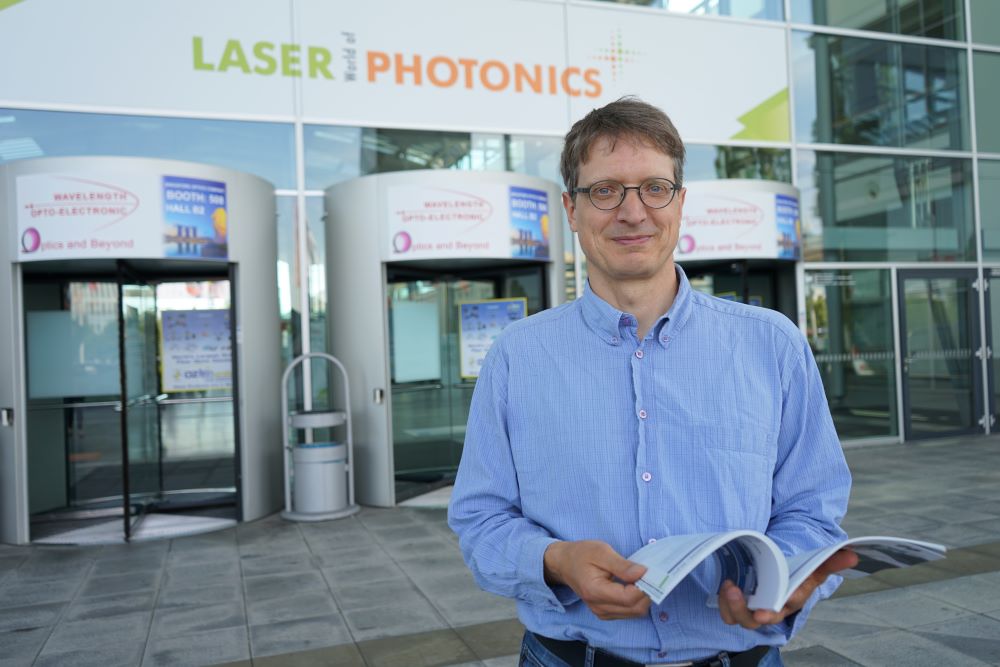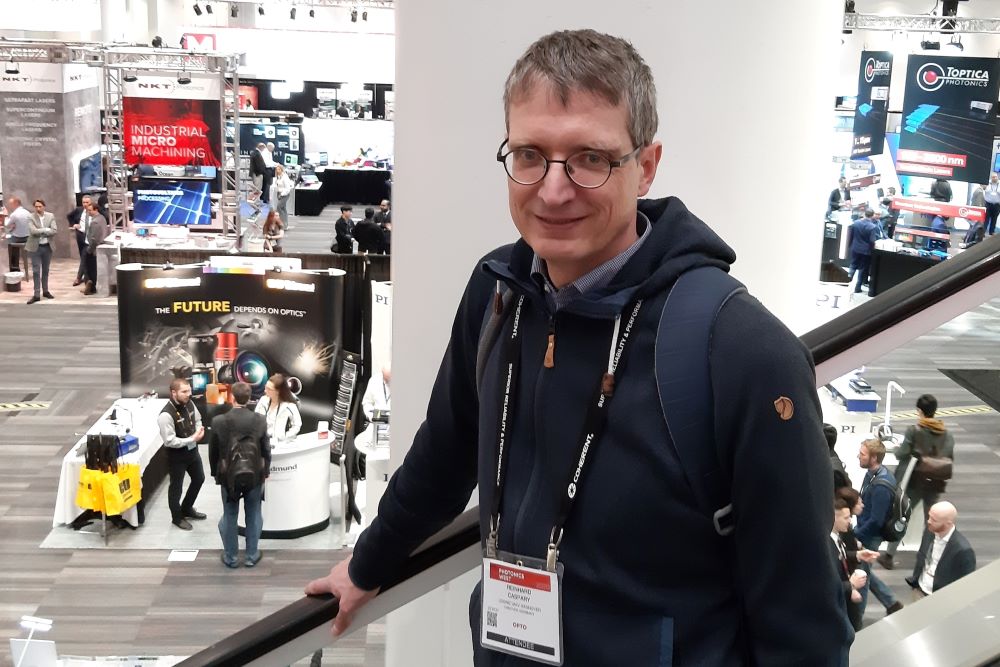Dr Reinhard Caspary travels a lot: Between Schneverdingen and San Francisco, he attends conferences, trade fairs and working meetings to get to know the state of research in the broad field of optical technologies. The Technology Coordinator of the Cluster of Excellence PhoenixD also regularly evaluates the technical journals of the six different departments of the cluster – physics, mechanical engineering, chemistry, electrical engineering, computer science and mathematics – and assists the board of directors. "The type and significance of scientific publications vary greatly depending on the discipline", Caspary observed. But that is not the only difference. "In physics, mechanical engineering, chemistry and computer science, very different cultures prevail in each case," says Caspary. "That starts with the way they work and doesn’t stop with the dress code."
He promotes cooperation
It is part of Caspary’s task to network these different groups within the cluster further. "I remind everyone how crucial networks and cooperation are to PhoenixD’s success in developing novel optical technologies," he says. "Little cooperation is one of the biggest mistakes we can make." He has just set up a working group on artificial intelligence in which mechanical engineers and computer scientists, among others, work together. "I hope that in the future the members will define themselves less through their original disciplines and more by developing a common identity as optical researchers".
Caspary is an electrical engineer and physicist
Caspary lives interdisciplinary work in his own everyday research. The scientist first completed a degree in physics at the University of Heidelberg. But he wrote his doctoral thesis in electrical engineering at the Technical University of Braunschweig. The current PhoenixD board member, Professor Dr Wolfgang Kowalsky, was once his doctoral supervisor. Caspary is particularly interested in optical communications technology, i.e. data transmission via optical fibres. Before PhoenixD, he was head of the Fluoride Glass Technology and Fiber Lasers group at the Institute for High-Frequency Technology at the Technical University of Braunschweig. There he worked on the development of novel optical fibres and fibre lasers. The technology coordinator is also involved in teaching: His first lecture at Leibniz Universität Hannover was devoted to applied wave optics. "I like teaching because I learn a lot myself," says the 51-year-old. "Teaching forces reflection and reflection is always helpful."

